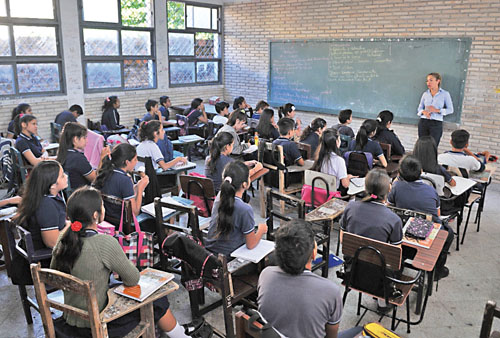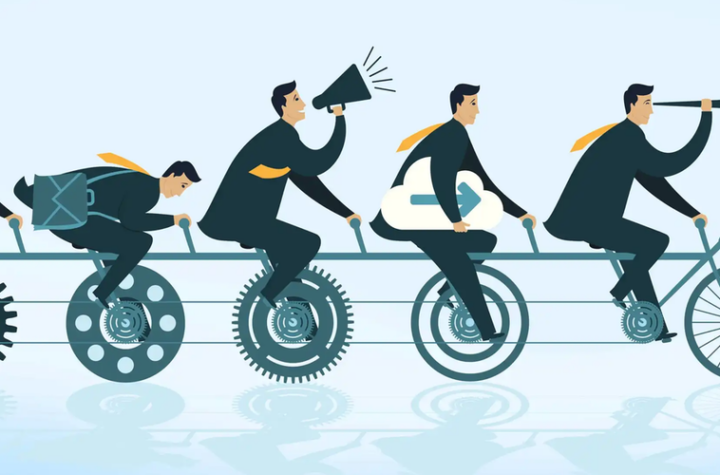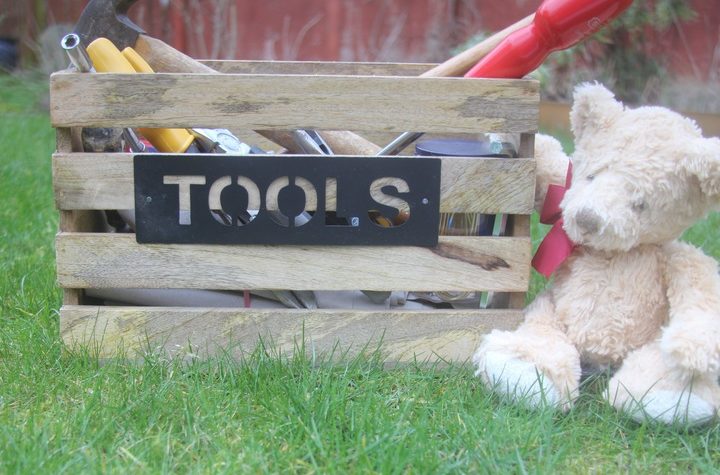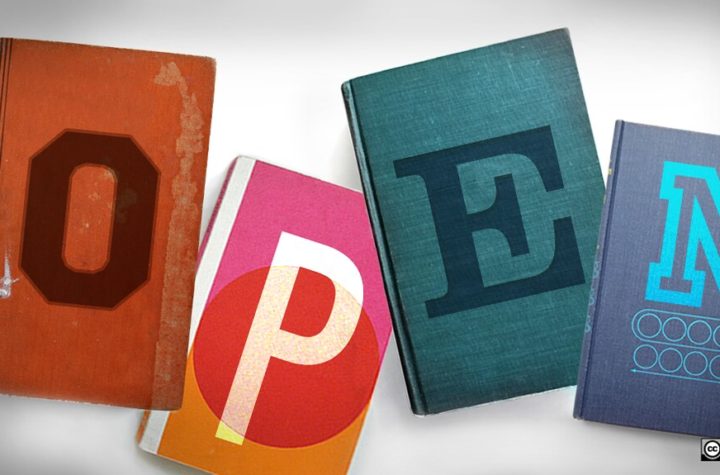
The post featured image depicts not only the classroom’s infrastructure on a typical public elementary school in my beloved country of Paraguay but also reveals a lot about other features.
Teachers. They are heroes; low salaries, always scratching for good tools, and most of them behaving in a highly moral and motivational way. They are the result of the very same faulty education system, thus it is to expect the lacking of major skills like comprehensive reading or problem-solving logic, just to mention some.
Safety space. A child —or any person, for that matter— feeling vulnerable needs at least a minimum and even precarious shelter where to refuge. Consider that in Third World countries, the food a child receives at school is a great deal on his daily diet; please think now about the school as a shelter for home distress or violence (both emotional and physical). Space with emotional support, not only a place made with bricks.
Politics. It resembles a mix of Franz Kafka’s The Trial and George Orwell’s 1984 novel. Public education establishments are subject to political and ideological agendas that prohibits developing medium and long time projects. The education will continue kidnapped as long as political parties can use it to influence (coerce) families’ vote and disable the children so they would not know how to do it differently when the times comes.
Rottenness. Tool and content without maintenance sooner or later will become obsolete. Projects can not succeed because of politics or ineptitude. This can be considered a crime —at least a moral one— because the student just won’t be competent enough to master his own future, probably restarting the cycle with his children to come.
Is education doomed?
Life comes with some standards one just needs to comply. Diplomas seem to be one of them so even when everyone wasted countless hours inside education institutes, nowadays it is still a must.

Each one must take responsibility for their own educational process, delegation on institutions is no more viable.
Start-ups are said to be more adaptable and innovative than really big companies who take months before an idea becomes an actual action; on the other hand, the budget and resources of a start-up can’t compete one on one against a giant business. If you have not noticed, the giant is the country and the start-up is you.
As said before, one must comply with the educational system to fulfill requirements to get a job, and so on. One needs to work crafting the right skills and mindset to master of his own learning process.
Learning is just another never-ending’s facet of life, like eating or (hopefully for you too) exercise your body. There is no excuse, one just needs to find out the objectives (areas of knowledge) and set a road map (concrete steps and dates so it becomes more real).
How does this solve the problems?
Teachers. There are many people who can guide and help out but you are the main responsible for supervising and lead your educational process. Teachers do not own the truth nor are they infallible. If inaccurate or false information is presented, your learning process will eventually purge it.
Safety space. Nothing robust and resilient is built overnight. The future is what we do with our present plus nature’s laws and universe randomness. With the right tools and skills, anyone is able to create their own safe space.
Politics. As a citizen, you need to comply with norms and respect the institutions. An appropriate state of mind can deal with discomfort and inefficiencies, without compromising your goals.
Rottenness. Because learning is a never-ending journey, some tools will become obsolete and new ones will appear.




2 thoughts on “Education in precarious institutions”